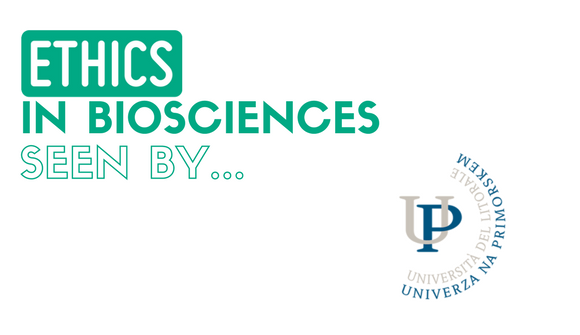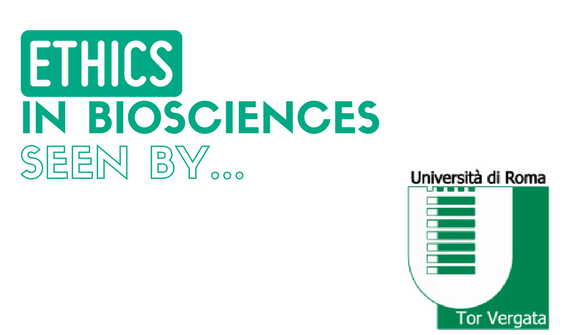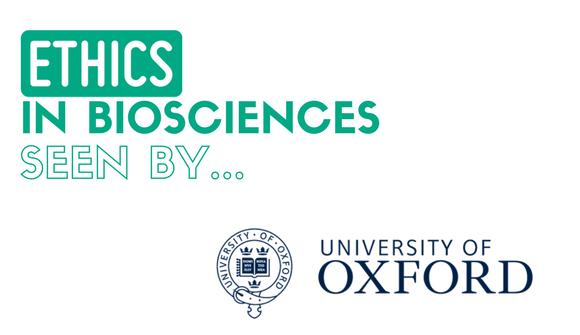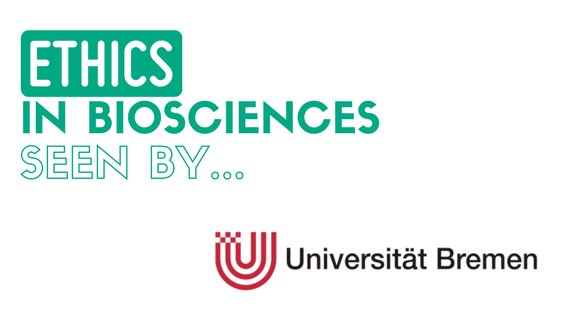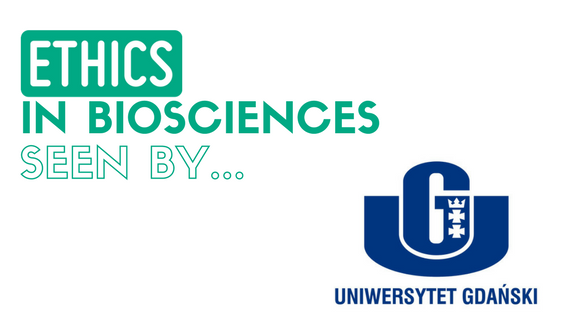How do you understand Ethics in biosciences research? Working at the Department of Biodiversity, I am aware about differences in opinions regarding the human relationship toward the rest of the natural world. Conservation biologists agree that biodiversity is valuable and that the extinction of species, caused by human activities, should be decreased and avoided. However, justifications for these principles vary, ranging from arguments that emphasize the instrumental value of other species for humans to ethical theories that assert that wild life has intrinsic value. The debate on environmental ethics is focused on developing universal theories why humans should protect their natural environment. What we are facing in our research and working with students is the challenge to find a solid rational justification for why nature should be protected. What are the current standards and actions to achieve better Ethics in your University and in your country? In the case of animal and human subjects’ research, all research conducted on Faculty of Mathematics, Natural Sciences and Information Technologies must be approved by National Medical Ethics Committee or by National Ethics commission for animal experiments. All field work with animal has to be approved by Ministry of the Environment and Spatial Planning. What are you aiming for with the implementation of the STARBIOS2 actions towards better Ethics standards for your institute? In relation to Ethics, our strategy is to raise awareness and evaluate the procedures for planning and including research ethical issues in researchers’ work via developing Code of conduct for conservation biology …
Ethics and RRI: the experience of UNITOV, Italy
Dr Carla Montesano – Assistant Professor of General Pathology and Immunology, member of STARBIOS2 Coordination Team, and responsible for the STARBIOS2 Action Plan of University of Rome – Tor Vergata Taking into account the Italian context, what are the objectives of the STARBIOS2 team regarding the relationship between ethics and RRI? In Italy, as is known, ethics in the biosciences sector is regulated by law at the national level and specific activities, such as the use of animals and biological samples of human origin, the generation and use of GMOs, are controlled by specific control committees. Within the framework of the STARBIOS2 project at the Department of Biology of the University of Rome “Tor Vergata”, we intend to raise awareness among young researchers on ethical issues, increasing the perception of ethics as a useful way for improving the research (in a qualitative sense): this to say that the adoption of an ethical practice in research means that research results and products are socially accepted. Furthermore, we aim to involve young researchers and PhD students in the ethics debate, as an important RRI key. The idea is to organize a “Bioethic open lab”, that is a permanent and open working group in the Department of Biology, for working out ethical issues regarding the biosciences. Which institution, within your university, is promoting this reflection? The “UNESCO interdisciplinary Chair in Biotechnology”, active since twenty years in the Department of Biology of University of Rome “Tor Vergata”, has carried out research related to the …
Ethics in Biosciences Research, University of Oxford
How do you understand Ethics in biosciences research? Ethics in biosciences research should be understood as means to ensure high-quality research and guarantee the protection of fundamental rights. Even though ethic principles are well defined and established, as biosciences research progresses, new ethical conflicts may arise. All biosciences research must be carried out within the good practice framework that Ethics represents. What are the current standards and actions to achieve better Ethics in your University and in your country? In the case of human subjects’ research, all research conducted on National Health Service (NHS) patients or their information must be approved by the Research Ethics Committee (REC) of the National Research Ethics Service (NRES) which coordinates RECs across the UK. If the research does not include NHS patients or their information, the University of Oxford has its own system of research ethics governance: the Central University Research Ethics Committee (CUREC). The majority of approvals are decentralised to Interdivisional RECs, and then to Departmental RECs. In the case of research conducted on animals, the UK has strict regulations that are overseen by the Home Office Department of the Government. Researchers must be trained and be granted a Home Office License in order to be able to conduct research on animals. What are you aiming for with the implementation of the STARBIOS2 actions towards better Ethics standards for your institute? In relation to Ethics, our strategy is to raise awareness and evaluate the procedures for planning and including research ethical issues in …
Ethics in Biosciences, seen by the University of Bremen, Germany
University of Bremen – Faculty of Biology & Chemistry Dr. Doris Elster – Head of the Department of Biology Education at the Institute of Science Education. How do you understand Ethics in biosciences research? The term “research ethics” comprises a set of values, norms and institutional regulations that support and regulate scientific activities. Research has a fundamental ethos, namely the search for truth. At the same time, research ethics emphasizes that research has a – more general -responsibility for the society. In this area of tension between researcher’s curiosity and responsibility towards humans and the environment research ethics in biosciences occurs. What are the current standards and actions to achieve better Ethics in the University of Bremen? At the University of Bremen ethical issues are determined within the “Regulations assuring good scientific practice” (German Research Association) and complied within the “Principles of good scientific practice”, adopted by the Academic Senate on February 23, 2002. The nine members of the “Committee for the Investigation of Allegations of Scientific Misconduct” are elected by the Academic Senate of the University of Bremen and investigate and evaluate any concrete suspicion of scientific misconduct. What are you aiming for with the implementation of the STARBIOS2 actions towards better Ethics standards for the Faculty Biology and Chemistry at the University of Bremen? Our aim is to raise awareness of ethical issues in general and to promote good research practice based on already existing and guidelines as well as further specific guidelines for the biosciences. At the University of …
Ethics in Biosciences, seen by the University of Gdansk, Poland
Prof. Krzysztof Bielawski – is a Professor at IFB. He is also Vice-Rector for Development at University of Gdańsk (UG) and has a PhD in medical biology and D.Sc. in biological sciences. Prof. Bielawski is a full-professor in biological sciences since 2011. 1. How do you understand “Ethics” in biosciences research? Ethics plays a vital role in research, especially in biosciences. Two aspects are to be taken into account in this respect. On the one hand, we have ethics in the sense of research ethics, valid for any research area. This includes issues such as research integrity, resolving conflict of interest, equality, so called “good and bad science” issue, etc. On the other hand, specific ethical issues affect the work of bioscience researchers related e.g. to the use of animals, human tissues, embryos or GMO, and have to be dealt with in a responsible way in order to make research safe, reliable and acceptable. 2. What are the current standards and actions to achieve better Ethics in Gdansk University and in Poland in general? Ethics in biosciences is regulated in Poland by rules introduced on the national level. Researchers need to observe laws and regulations regarding the use of animals, human tissues as well as GMO or GMM. Specific ethical consents need to be obtained from the respective national or regional bodies as a proof that the institution and the projects complies with the required procedures. In some cases these consents are issued e.g. by the Ministry for Environment in other …




